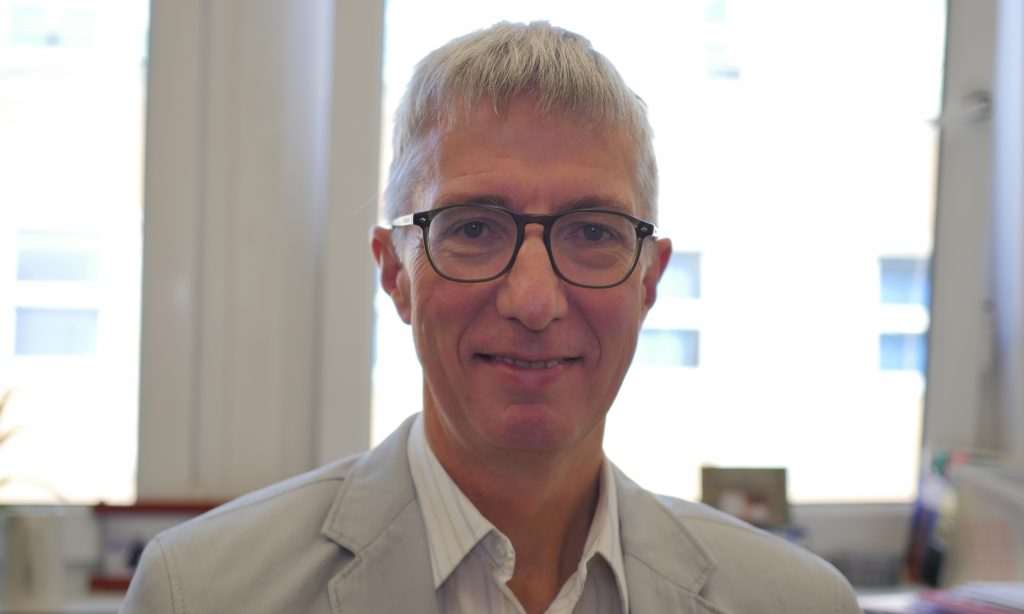The PROMOTE Study
Fast facts
- Official title: The PROMOTE Study: Patient Reported Outcome Measures Online To Enhance Communication and Quality of Life after childhood brain tumour
- Lead researchers: Professor Colin Kennedy and Dr Kim Bull
- Where: Southampton General Hospital and the University of Southampton
- When: January 2017 – April 2020
- Cost: £298,000 .
- Research type: Paediatric, High and Low Grade, Quality of Life
What is it?
The project is named The PROMOTE Study – Patient Reported Outcome Measures Online To Enhance Communication and Quality of Life after childhood brain tumour.
The PROMOTE team are developing an online programme called KLIK which will be used by children and their families to keep track of any issues they have between consultations.
KLIK was originally designed in the Netherlands for use by families of children with other chronic diseases, and was shown to cut the time families needed to spend in the consultant appointment. This means the consultant knows about key issues before the appointment and they can address them more thoroughly.
Professor Kennedy and Dr Bull are working with patients, parents and clinical staff to develop a brain tumour -specific, English adaptation of the programme, which can also be used by a child.
KLIK prioritises any feedback using a traffic light system (green, amber, red) to flag up areas that the clinician can discuss with the family at the next appointment.
Patient Reported Outcome Measures (PROMs)
This type of input, from both the child and their family, is known as Patient Reported Outcome Measures (PROMs). PROMs keep clinicians more up to date on a patient’s symptoms, and can help clinical staff to deliver care based on the needs and choices of each individual patient.
Until this study there were no UK studies for children following treatment for brain tumours that look at the possible benefits of feeding back PROMs into clinical care.
The web-based platform has been designed to be suitable for use by children and parents to answer questions using their laptops or computers.
The use of a simple online tool enables ongoing discussions and routine appointments soon after diagnosis. This system may also prevent long-term, unnecessary harm to a child’s quality of life, by introducing better help and services, based on individual feedback.
Why is it important?
This research will propel our ability to understand, and potentially prevent, the harsh side effects of brain tumour treatment in children to help accelerate a change for those affected.
Currently the discussion of emotional, social and cognitive issues impacting on quality of life after childhood cancer doesn’t routinely take place in consultations. It also varies between different treatment centres. This must change!
This research by Professor Kennedy aims to address this important issue by setting up and assessing the use of an online feedback system to aid communication between clinicians and families that are affected.
Who will it help?
When children have treatment for brain tumours, they often come out the other side with a poor quality of life due to issues such as visual impairments, mobility problems, and fatigue in addition to behavioural and emotional effects.
These changes not only affect the child, but the entire family, with many parents reporting distress, anxiety and depression following the diagnosis of their child.
This research aims to improve life for children with a brain tumour, and their families through better understanding of long term issues and ultimately prevention.
Until now most clinical trials have been set up to test the question “Is Treatment A better than treatment B?” but if you’re only looking at survival you’re not answering the whole question. You need to look at the quality of survival too.
Professor Colin Kennedy
Milestones
Achieved
The PROMOTE team have already translated the existing KLIK software into English and adapted it specifically for children with brain tumours and their parents. They have tested their programme with 18 families to make sure that the issues the families raise can be addressed properly.
Professor Kennedy’s team have also consulted with other clinicians, including a clinical psychologist, and other quality of life experts to ensure that the programme is suitable for their use too i.e. does it cover the areas the clinician want to discuss in the consultation.
Upcoming
The PROMOTE team will be testing the brain tumour version of KLIK further to ensure it makes a meaningful difference to families and clinical care. They’ll be asking families to use KLIK and compare their experiences to families receiving the current standard of care without access to KLIK.
If KLIK is proven to be effective the researchers will broaden their tests to include families being treated at Nottingham University Hospital, Great Ormond Street Hospital, and Southampton General. They will be aiming to recruit 15 families at each of the three sites.
The team will also be looking at how cost effective it is to use KLIK in the clinical setting, with the ultimate goal of having it as part of standard of care in the NHS.
Research is just one other way your regular gift can make a difference
Research is the only way we will discover kinder, more effective treatments and, ultimately, stamp out brain tumours – for good! However, brain tumours are complex and research in to them takes a great deal of time and money.
Across the UK, over 100,000 families are facing the overwhelming diagnosis of a brain tumour and it is only through the generosity of people like you can we continue to help them.
But, by setting up a regular gift – as little as £2 per month – you can ensure that families no longer face this destructive disease.
In this section
Recommended reading

Professor Kennedy and the team of researchers behind the PROMOTE study explain the KLIK system they are developing to collect quality of survival information from young people with brain tumours, and their families
